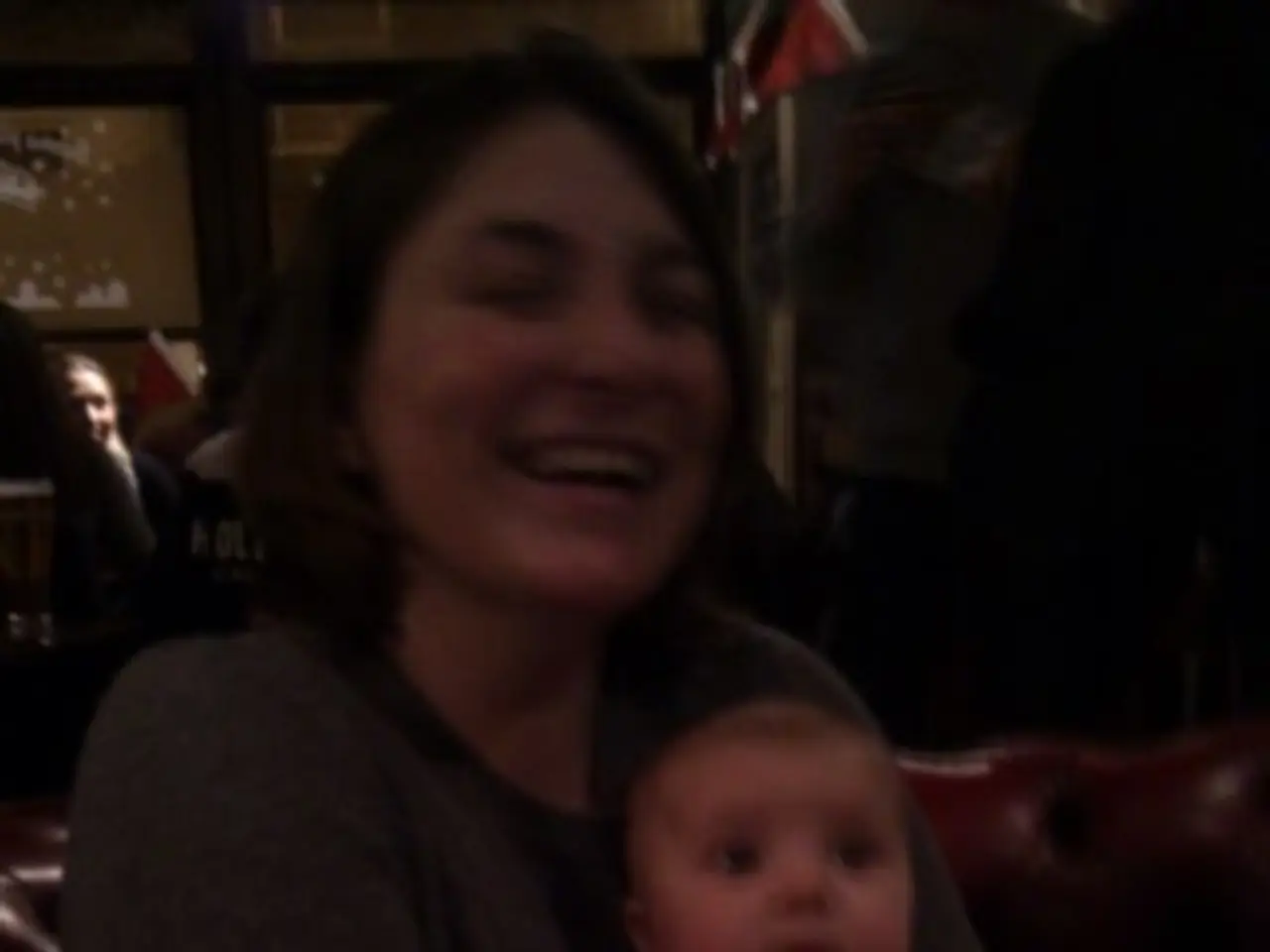Mental health issues following childbirth: postpartum depression versus psychosis
Postpartum depression (PPD) and postpartum psychosis (PPP) are distinct mental health conditions that can occur after childbirth. While they share some symptoms, they differ significantly in symptoms, risk factors, prevention, and treatment.
Symptoms
Postpartum depression, more common and less severe, typically presents with symptoms of depression and anxiety developing within the first year postpartum. Symptoms may include persistent sadness, severe mood swings, excessive crying, feelings of hopelessness, worthlessness, guilt, difficulty bonding with the baby, changes in appetite and sleep patterns, intense irritability, anxiety, panic attacks, fatigue, loss of interest in activities, and thoughts of self-harm or suicide.
On the other hand, postpartum psychosis is a rare, severe psychiatric emergency. It often appears rapidly after birth, within 48-72 hours, and features symptoms such as sudden onset of hallucinations, delusions, confusion, disorganized thinking, disorganized speech, paranoia, incoherent or disorganized behavior, reduced self-care, social withdrawal, emotional disturbances, impaired judgment and decision-making, and impaired self-care. PPP is also characterized by delusions often centered on the infant, auditory hallucinations that may command harm to self or baby, restlessness, agitation, insomnia, and high risk of suicide and infanticide.
Risk Factors
Risk factors for PPD include a past history of depression or anxiety, difficulties during pregnancy or childbirth, lack of social support, and racial disparities, such as higher reported rates in African American and Latina women.
Postpartum psychosis is more strongly linked to a history or family history of bipolar disorder or previous psychotic episodes. It is rare, affecting approximately 1 in 1,000 women postpartum.
Prevention and Treatment
Preventive measures for PPD include early identification and support after delivery, maintaining social support systems, and prompt treatment of antenatal depression or anxiety. For PPP, close monitoring of women with bipolar disorder during pregnancy and postpartum, and prophylactic use of mood stabilizers in high-risk women, are recommended.
Treatment approaches for PPD often involve a combination of psychotherapy, such as cognitive-behavioral therapy or interpersonal psychotherapy, antidepressant medications (chosen carefully if breastfeeding), supportive care, and ongoing monitoring. Early postpartum checkups to assess mental health are also crucial.
Postpartum psychosis requires urgent medical intervention and hospitalization, often involving the use of mood stabilizers, antipsychotic medications, and sometimes electroconvulsive therapy. Intensive monitoring is necessary due to the risk of harm to the mother and infant.
Seeking Help
If someone is not in the United States, they can call 911 or their local emergency services number if they feel safe to do so. In the US, the 988 Lifeline provides 24/7, free and confidential support for people in distress or experiencing suicidal thoughts.
Awareness and Support
Fostering awareness and providing adequate support can play a significant role in promoting the well-being of individuals experiencing postpartum mental health challenges. Both conditions can lead to significant emotional and psychological distress, and it is crucial to address them promptly and effectively.
[1] American Psychological Association. (2021). Postpartum Psychosis. https://dictionary.apa.org/postpartum-psychosis
[2] Postpartum Support International. (2021). Postpartum Depression and Anxiety. https://www.postpartum.net/about-postpartum-mood-disorders/postpartum-depression-and-anxiety/
[3] Mayo Clinic. (2021). Postpartum psychosis. https://www.mayoclinic.org/diseases-conditions/postpartum-psychosis/symptoms-causes/syc-20374822
[4] National Institute of Mental Health. (2021). Postpartum Depression. https://www.nimh.nih.gov/health/topics/postpartum-depression/index.shtml
[5] Royal College of Psychiatrists. (2021). Postnatal psychosis. https://www.rcpsych.ac.uk/patients-carers/find-help-support/conditions-treatments/postnatal-psychosis
Read also:
- Everyday Life Protection Strategies in Emsland: Insights from Experts on Heat Resistance
- Lefties having a creative edge and greater athletic prowess - a common belief explored?
- Trauma-Induced Dissociative Conditions Related to Bond Attachment
- Understanding Cyclic Edema: Its Definition and Characteristics




